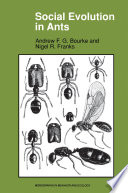 | Carl Gottfried Hartman - Rural schools - 1894 - 192 pages
...circumstances; first, to the increase of dexterity in every particular workman; secondly, to the saving of time which is commonly lost in passing from one species of work to another; and. lastly, to the invention of a great number of machines which facilitate and abridge labor, and enable one man... | |
 | Charles Jesse Bullock - Economics - 1907 - 732 pages
...circumstances : I. To the increase of dexterity in every particular workman ; II. To the saving of the time which is commonly lost in passing from one species of work to another; III. To the invention of a great number of machines which facilitate and abridge labour, and enable... | |
 | University of Texas at Austin - 1907 - 746 pages
...saving of time which i> commonly Inst in passing from one species of work to another; and. lastly, to the invention of a great number of machines which facilitate and abridge labor, and enable one man to do the work of many." The principle of the division of labor in human... | |
 | Edward Sherwood Mead - Economics - 1909 - 510 pages
...circumstances; first, to the increase of dexterity in every particular workman; secondly, to the saving of time which is commonly lost in passing from one species of work to another ; and, lastly, to the invention of a great number of machines which facilitate and abridge labor, and enable one man... | |
 | Adam Smith - Economics - 1909 - 634 pages
...circumstances; first} to the increase of dexterity in every particular workman ; secondly ,^to the saving of the time which is commonly lost in passing from one species of work to another; and lastly>ito the invention of a great number of machines which facilitate and abridge labour, and enable... | |
 | Adam Smith - Economics - 1909 - 644 pages
...first, to the increase of dexterity in every particular workman; secondly, to the saving of the urne which is commonly lost in passing from one species of work to another; and lastly, to the invention of a great number of machines which facilitate and abridge labour, and enable one... | |
 | William H. Sewell (Jr.) - History - 1994 - 252 pages
...productivity for three reasons: "the increase in dexterity in every particular workman; . . . the saving of time which is commonly lost in passing from one species of work to another; and . . . the invention of a great number of machines which facilitate and abridge labor."45 Sieyes, by... | |
 | Jerry Z. Muller - Business & Economics - 1995 - 292 pages
...tasks. It saves time that would otherwise be lost in switching from one task to another. And it favors "the invention of a great number of machines which...labour, and enable one man to do the work of many." 10 As an example of such machines he cites the "fire-engine," known to us as the steam engine, the... | |
 | Andrew F.G. Bourke, Nigel R. Franks - Nature - 1995 - 548 pages
...circumstances; first, to the increase of dexterity in every particular workman; secondly, to the saving of the time which is commonly lost in passing from one species of work to another; and lastly, to the invention of a great number of machines which facilitate and abridge labour, and enable one... | |
| |